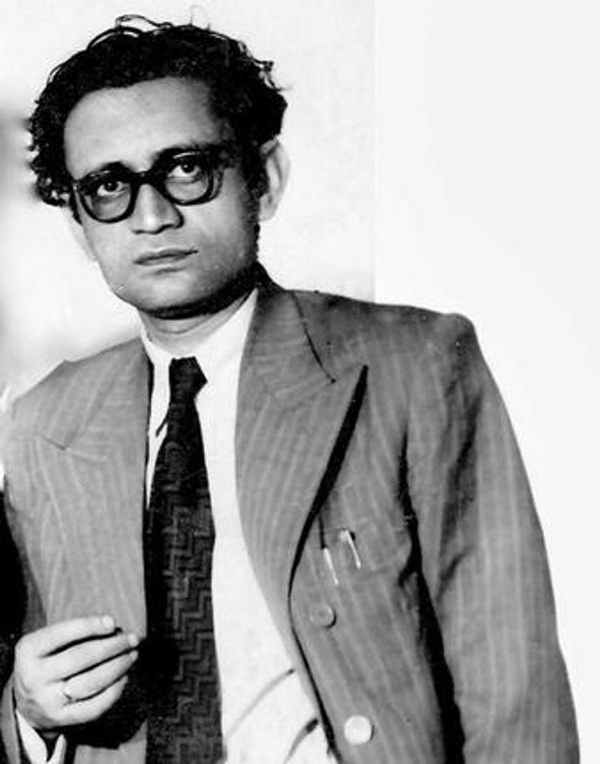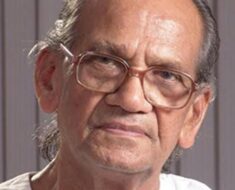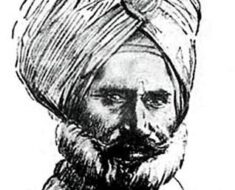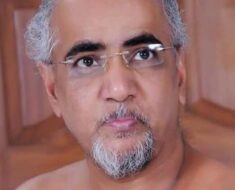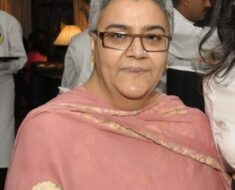Saadat Hasan Manto, a literary giant of the Indo-Pakistani subcontinent, remains a controversial and captivating figure. His life, as turbulent as his prose, continues to fascinate and inspire.
Biography/Wiki
Saadat Hasan Manto was born on May 11, 1912, in Paproudi village, Samrala, Ludhiana, Punjab, British India. His Indo-Pakistani nationality reflects the political upheaval of his time; his family migrating to Pakistan after the partition. A prolific writer, he mastered Urdu, crafting plays, novels, short stories, radio plays, essays, and sketches. Manto fearlessly explored society’s harsh realities, employing a uniquely unconventional style.
Inspired by scholar Abdul Bari Alig, Manto delved into French and Russian literature, shaping his distinctive voice. His life, however, was marked by constant struggle. He faced six trials across India and Pakistan, accused of immorality in his writings.
Family & Children
Manto hailed from a middle-class Muslim family in Ludhiana, the son of Ghulam Hasan Manto, a local court judge, and Sardar Begum. Ethnically Kashmiri, he proudly embraced his heritage, once writing to Jawaharlal Nehru about the inherent beauty associated with Kashmiri identity.
His parents arranged his marriage in 1936 to Safia Deen (later Safia Manto), born on May 11, 1916. He even documented this event in an essay titled “Meri Shaadi” (My Wedding). Their son, Arif, sadly died in infancy, a profound loss for the couple. They later had three daughters: Nighat, Nuzhat, and Nusrat.
Following the partition, the family moved to Lahore, Pakistan in January 1948. Initially resistant to the partition, Manto’s decision to leave India was spurred by a chilling encounter with Hindu colleagues.
Career
A pivotal moment arrived in 1933 when Manto met Abdul Bari Alig in Amritsar. Alig’s encouragement led Manto to Aligarh Muslim University where he pursued his education. His exploration of Western literature refined his short story writing, beginning with an Urdu translation of Victor Hugo’s “The Last Day of a Condemned Man,” titled “Sarguzasht-e-Aseer” (A Prisoner’s Story).
Manto often wrote entire stories in a single sitting, focusing on society’s marginalized individuals. He became associated with the Indian Progressive Writers’ Association (IPWA) while at Aligarh Muslim University. His second story, “Inqilaab Pasand,” was published in the Aligarh magazine in March 1935.
His career also included work with All India Radio’s Urdu Service, producing four collections of radio plays. He also penned renowned short story collections like “Dhuan” and “Manto Ke Afsane,” and an essay collection, “Manto Ke Mazameen.”
After leaving All India Radio in 1942, he returned to Bombay and successfully worked in the film industry, contributing to films like “Shikari,” “Aath Din,” “Mirza Ghalib,” and “Chal Chal Re Naujawan.”
In Lahore, Manto associated with literary luminaries like Nasir Kazmi, Faiz Ahmad Faiz, Ahmad Nadeem Qasmi, and Ahmad Rahi, engaging in lively debates at the iconic Pak Tea House.
His insightful essays, including “Letters to Uncle Sam,” offered poignant commentary on Pakistan’s international standing, predicting censorship and lamenting his own financial struggles despite his considerable literary output.
Controversy
Manto faced numerous obscenity trials: three in India (pre-1947) for “Dhuan,” “Bu,” and “Kali Shalwar,” and three in Pakistan (post-1947) for “Khol Do,” “Thanda Gosht,” and “Upar Neeche Darmiyaan.” He was fined only once.
Death
Sadly, alcohol addiction led to Manto’s death from multiple organ failure at 42 on January 18, 1955, in Lahore. He had written his own epitaph, but it was never used on his grave. His life and work continue to spark debate and introspection.
Award & Recognitions
* Posthumously awarded the Nishan-e-Imtiaz by the Government of Pakistan (August 14, 2012).
* Commemorated on a Pakistani postage stamp (January 2005).
* Subject of several biographical films, including those directed by Sarmad Sultan Khoosat and Nandita Das.
Favourite Things
Manto’s preferences included Gajjar Ka Halwa, Silver-Capped Sheaffer pens, Gold Embroidered Juttis, and Bombay (Mumbai) as his favorite destination.
Facts
Manto was a smoker and drinker. His hobbies encompassed reading, writing, and traveling.
Key Events in Saadat Hasan Manto’s Life
| Year | Event |
|---|---|
| 1912 | Born in Paproudi village |
| 1933 | Meets Abdul Bari Alig, a turning point in his career |
| 1936 | Marries Safia Deen |
| 1942 | Leaves All India Radio |
| 1947 | Migrates to Lahore, Pakistan |
| 1955 | Dies in Lahore |
| 2012 | Posthumously awarded Nishan-e-Imtiaz |

